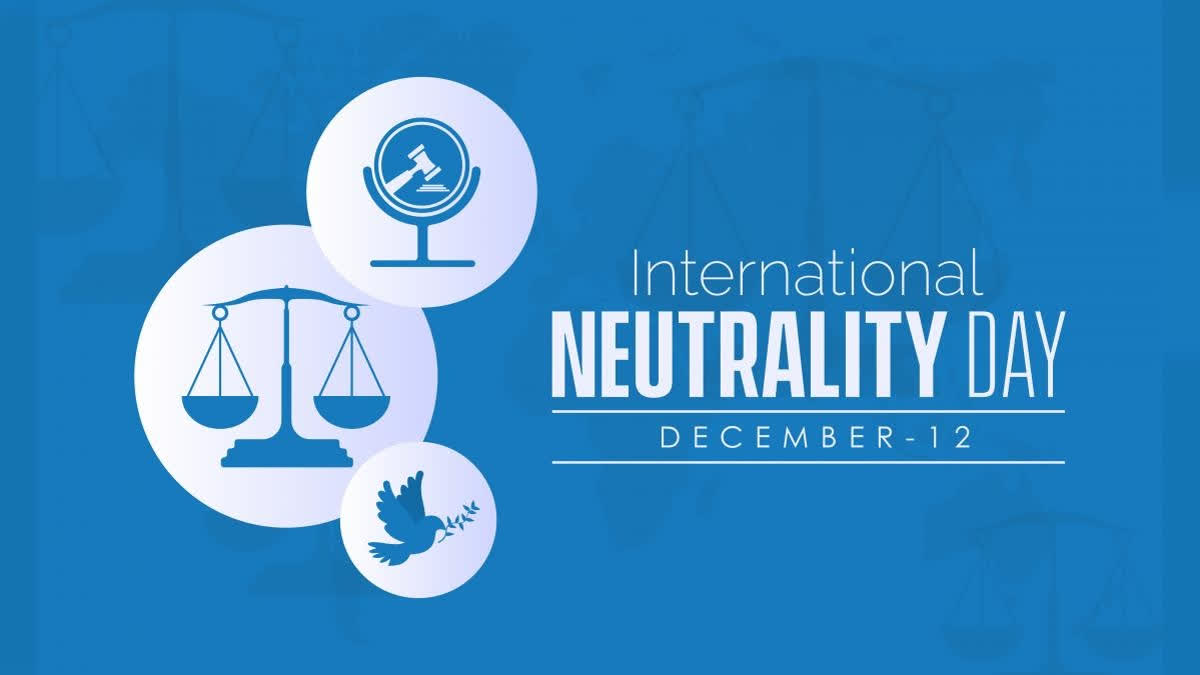Hyderabad: International Day of Neutrality is commemorated on December 12 every year to raise awareness regarding the importance of neutrality in intergovernmental relations and to strengthen peace and security at the global level.
As per the United Nations, neutrality is the legal status arising from the abstention of a country from any kind of participation in a war between other states and maintaining an impartial attitude toward the belligerents.
The day is marked globally by holding various types of events aimed at raising public awareness of the value of neutrality in international relations.
What is Neutrality?: According to international law, a neutral country is also called a sovereign state. A neutral country is one that remains neutral by keeping itself away from the war between other countries. That is, that country does not support any of the warring countries. Apart from this, neutral countries always insist on resolving the dispute through dialogue instead of war. Switzerland is a country which is very famous for its policy of 'neutrality'. Due to this policy, Switzerland has been largely successful in avoiding the destruction of the First and Second World Wars.
India's Policy of Neutrality: India has remained neutral in world politics till now. Especially during the Cold War between the US and the Soviet Union, India was one of the few countries in the world which kept itself neutral by not joining either of the two groups. Even today the US and Russia are opposing superpowers, but India does not have an alliance with any one country.
India has friendly relations with both the US and Russia.
History of The Day: On 2 February 2017, the UN General Assembly adopted without a vote resolution 71/275 introduced by Turkmenistan, recognised by the UN as a permanently neutral state since 12 December 1995 which noted the link between the preservation of peace and the 2030 Agenda for Sustainable Development, and declared 12 December as the International Day of Neutrality.
The aforementioned GA resolution also proposes that the UN Secretary-General continue to cooperate closely with the neutral states, with a view to implementing the principles of preventive diplomacy and utilising them in mediation activities.
Preventive Diplomacy: The United Nations is committed to moving from a culture of "reaction" to one of "prevention". The term 'Preventive diplomacy' refers to diplomatic action taken to prevent disputes from escalating into conflicts and to limit the spread of conflicts when they occur. While it is conducted in different forms and fora, both public and private, the most common expression of preventive diplomacy is found in the work of envoys dispatched to crisis areas to encourage dialogue, compromise and the peaceful resolution of tensions.
UN Mediation: Since its inception, the United Nations has played a crucial role in helping to mediate inter- and intra-state conflicts at all stages: before they escalate into armed conflict, after the outbreak of violence, and during the implementation of peace agreements. Successful conflict mediation requires an adequate support system to provide envoys with the proper staff assistance and advice and ensure that talks have the needed logistical and financial resources.
Peacemaking: UN peacemaking flourished in the decade following the end of the Cold War, as many longstanding armed conflicts were brought to an end through politically negotiated settlements. The organisation continues to play a preeminent role in peacemaking, working increasingly in partnership with regional organizations in order to bring ongoing conflicts to an end and to prevent new crises from emerging or escalating.



